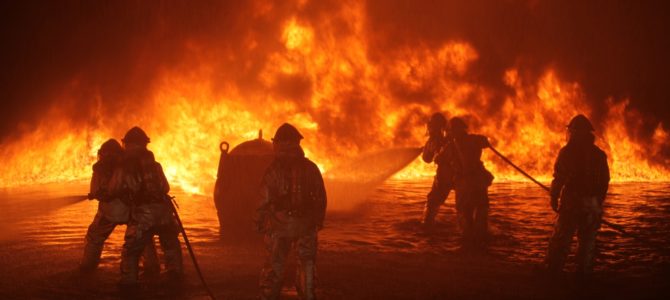
“Be safe,” we shout. It would be nice, of course, if everyone also made an attempt at kindness, wisdom, courage, and compassion; but safety is the one thing we demand.
Safety is a code of conduct that transcends class and creed. It is a duty all have been raised to acknowledge, and therefore it allows us to speak to others, to tell them what to do. We aren’t supposed to chastise other people’s children in matters of morals or manners, but no one blinks at, “Don’t do that, or else you’ll get hurt.” No one is shocked at rules developed “for your own safety.”
In a religion of safety, it is only natural that suffering is the ultimate sin. After all, if we did not blame others for their own pain, we would be forced to admit that perhaps suffering happens even to people who do not particularly deserve it. People like us: people who are faithful to the religion of safety. It is illustrative of our attitude that, according to one study, people on average ascribe moral blame to a theoretical mother whose infant is temporary left alone in the car because the mother has been knocked unconscious in the parking lot while returning a shopping cart. It is our moral duty not to suffer from bad things.
We believe safety is a trophy we have won. We tell the kids to get in their car seats—or wear a helmet, or use birth control, or lock the door—“so you will be safe.” But, of course, despite our common creed, none of us are completely deceived. We cannot help knowing deep down that all we really mean is safer. We just don’t like the implications of that nasty little -er.
Safety Isn’t Actually A Virtue
That is why we shake when an unpredictable tragedy strikes a crowd of ordinary people. We are forced to realize: it could have been me. We are forced to see that if those people were sinners, so, too, are we. We are all guilty of human mortality, of human weakness.
And we are reminded that safety isn’t a virtue at all. Because when a shooter is active, real virtue doesn’t hog the safest spot. Virtue tells others, “Here, stand behind me.” When fires roar through neighborhoods, virtue runs toward the smoke and flames to evacuate hospital patients from buildings surrounded by scorching wind. Real virtue is dangerous. Real virtue actively chooses the path of pain and potential suffering.
The violence in Vegas and the destruction in California’s wine country are both terrible reminders of the brokenness of our world. Yet in the dark shadow of these events we see also the breathtaking beauty of love and self-sacrifice. We see that the cold faith of materialism—the brutal selfishness of a religion that puts our own physical wellbeing above all other things—is not enough.
Because, of course, self-sacrifice-as-virtue doesn’t make any sense unless reality is bigger than human life. People who give up their own lives in order to save others are either the ultimate criminals against truth, or else they are witnesses to the truth of an eternity that changes the meaning of what is good and what is evil. And national tragedies force us to ask which of those statements is a lie.
Suffering Reminds Us Where True Value Lies
If we care about honesty, we will resist hiding the question behind a barrage of pointed fingers. We will hold off from assuring the world that every one of us can be safe as soon as we overcome the recalcitrance of the other political party. We will refrain from masking our fears behind the same old religion that failed in Vegas and California.
Instead, let us turn to the realization that we are all weak, all frail, all sinners. Sin is an uncomfortable word. Yet talking about sin doesn’t actually lead to judgmentalism. Judgmentalism comes from labeling others. Humility comes from naming the sins we all are guilty of committing; of standing together as people who cannot save ourselves.
Our neighbors suffer because they are sinners. So are—and will—we all. The question is not how to escape the pain of being human. The question is: how ought humans to suffer? We have seen the first responders, the courageous bystanders, and the self-sacrificial victims who tried to shelter others. All are witnesses to the truth that humans are more than a body to be kept safe. Humans possess a soul. As the old revival meetings told us, souls can be saved; but Jesus also tells us “whoever would save his life will lose it, but whoever loses his life for my sake will find it.”
Our culture values safety above all things. In the end, this teaches us to value only ourselves. The real tragedy is that as we rush about protecting our bodies, we are losing our souls.









